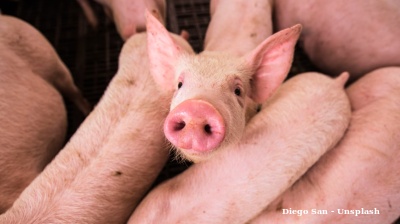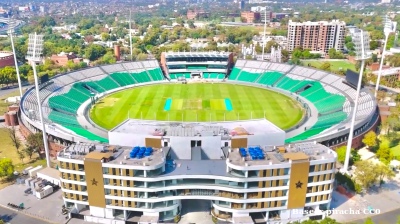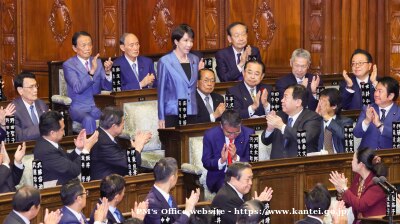Belarusian President Alexander Lukashenko has but one friend in the world and, in his own words, that person is Vladimir Putin, he told famous Russian reporter Nailya Asker-Zade in a long interview for her programme on the state-owned Russian television channel Rossiya 1 on January 10.
Both the Kremlin and Lukashenko are keeping up their effective propaganda war to manage Russian perceptions of the stand-off between the president and the Belarusian population. Asker-Zade follows the head of RT Margarita Simonyan to Minsk, who also interviewed Lukashenko at the end of last year as part of a campaign to manage Lukashenko’s image in Russia.
Asker-Zade’s hour-long segment included a ride in Lukashenko’s Mercedes, a tour of his residence, a trip to a hockey rink, and dinner with the Belarusian president and his youngest son, Meduza reports.
“‘We need to be closer to Russia,” said Lukashenko on his friendship with Putin, also mentioning that the mooted constitutional changes may be pushed through sometime this year, the Kremlin’s preferred way of bringing the stand-off to an end.
Asker-Zade, who is romantically linked to the CEO of Russia’s VTB Bank, Andrei Kostin, asked Lukashenko to comment on his decision to declare 2021 the Year of People's Unity.
“I just want to say that I did not do it just to show anyone anything. Although it also makes sense, so that people understand that I am not an enemy to my own people and, above all, to myself. I want peace and concord in the country. You probably want this, too. If you do not like the current president, then the presidential election is the only way to address the issue. Only the presidential election. I say this no matter how much some might dislike it,” Lukashenko said, referring to the disputed August 9 presidential election which was massively falsified to give the incumbent a landslide victory.
“When the ‘protesters’ walked the streets – there were no days off,” Lukashenko said, referring to the opposition protests that erupted on the day of the elections in August, but added he still finds time to play ice hockey three times a week.
Lukashenko had been skilfully playing his relation with Russia off against a flirtation with the West that led to the EU dropping some sanctions imposed on Minsk connected to accusations that Lukashenko had several of his political opponents killed in 2010. However, the country-wide protests have isolated Belarus and made it a pariah state once again.
Lukashenko came close to being ousted by the protesters at the end of August until Putin’s statement that he was willing to send a special military unit to quell the protests “if necessary” on August 27. Now Lukashenko is entirely dependent on the Kremlin to maintain his grip on power.
However, the Kremlin is clearly getting tired with the bumbling autocrat. Russian Foreign Minister Sergei Lavrov was dispatched to Minsk in November and told Lukashenko to “keep your promises” in a reference to a commitment made by Lukashenko to Putin during their meeting in Sochi earlier that year to change the constitution.
The Russian language publication The Insider later reported that it had seen documents that show the Kremlin is intending to set up a pro-Russian political party as part of the constitutional changes plan that could be manoeuvred to give the Kremlin more control over Belarusian domestic policies in associated parliamentary elections that could be part of the constitutional changes. Analysts speculate that either Lukashenko’s powers will be weakened in the change or that he will eventually be removed entirely after a face-saving interval has passed.
Lukashenko highlighted to Asker-Zade that he and the Russian President are “on the same team.” Lukashenko even went so far as to call Putin his only friend, acknowledging in the same breath that he has “many opponents.” “We need to be closer to Russia,” he concluded. “But the gas price could be fairer,” he added, referring to the fact that the cash-strapped Russia had started to wind down its energy subsidies to Belarus last year. Belarus is estimated to have received something of the order of $100bn in energy subsidies from the Kremlin over the last two decades to prop up the Lukashenko regime.
Both the European Union and the United States imposed sanctions against Belarus, blacklisting a total of 88 individuals, including Lukashenko himself, but the Belarusian president seems unbothered by this fact, playing on the Kremlin’s propaganda theme of “Russia under attack by the West.”
“The Western sanctions aren’t upsetting; I’m used to it. The West’s refusal to recognise the election results won’t kill me,” he told Akser-Zade. Lukashenko has continuously claimed that NATO forces are massing on Belarus’ western border as a means of distracting from the protests and as a meme he hoped would rally national fervour to his flag, without much success. He even went as far as putting the entire Belarusian military on full alert in the summer as part of his effort, until he stood them down again, admitting that keeping the army on alert was “too expensive.”
At the same time, he has tried to revive his former rhetoric of friendship with the West and move back to his faux neutral position between the west and the east, which has played more as a farce since August 9. Lukashenko said that “we want and will build relations with the United States,” adding: “I think they want to too, but if they don’t want to, they will.”
The incoming administration of newly elected Joe Biden is likely to be tougher on Belarus as the new president was point for Obama on eastern Europe and is unusually well informed about eastern European affairs for a US politician.
Lukashenko had nothing good to say about his main opponent in last year’s elections, opposition leader Svetlana Tikhanovskaya, whom he badly misjudged, initially dismissing her as “just a housewife.”
“[Tikhanovskaya] is the voice of those who are financing and directing her, she can’t formulate a basic thought herself…. Her course is determined by the intelligence service of Lithuania and Poland, and the US is in charge of all of this,” Lukashenko claimed flipping back to his default position of “enemy at the gate” to explain the uprising.
Reflecting on his meeting with jailed opposition leaders at a KGB detention centre in October 2020 that included Viktor Babariko, who was on course to defeat Lukashenko in the August elections, Lukashenko said that he doesn’t regret it, because “I showed that we can have a dialogue.” As bne IntelliNews reported Max Bogretsov as saying, a pioneer of the country’s IT sector and now the de facto leader of Babariko’s supporters, Lukashenko’s meeting was more of a display of power than a genuine attempt to find a compromise with the opposition leaders.
Lukashenko obviously took Lavrov’s warning to heart and reiterated his promise to Asker-Zade that he would organised a referendum on changing the constitution this year – which was probably the point of giving this interview to reassure the Kremlin he was following orders, in which the “people will decide.”
Back at Lukashenko’s home, Asker-Zade sat down for a meal with the Belarusian president and his youngest son, Nikolai. Lukashenko offered some insight into their relationship, as well: “My son gives me advice, and not just me. My son has his own point of view. Every day he says: “Dad, you’re wrong.” Sometimes I ask him to shut up, but sometimes I understand that he’s right, especially now,” Lukashenko said as cited by Meduza.
Lukashenko also said that a currency union will “crown the integration between Russia and Belarus.”
Belarus has already agreed to a Union State deal with Russia in 1991 that would create the equivalent of a “Rublezone” to the EU’s Eurozone and include introducing a common currency, likely to simply be the use of the Russian ruble as legal tender in Belarus.
Little has been said on a currency merger in public, but as bne IntelliNews has reported it is likely to be part of the Kremlin’s plans for the deeper integrations of the two economies.
Specifically negotiations on the creation of a Rublezone are likely to have been part of the talks between Lukashenko and Russian Prime Minister Mikhail Mishustin who flew to Minsk with much of the Russian Cabinet in September early on in the political crisis. However, very few details of the subject matter of the talks were released to the public.
A currency union between Russia and Belarus is to crown integration processes between the two countries but he claimed it is not being looked at the moment.
"There was no detailed discussion of a currency union," he told Asker-Zade. "Because from the very start we agreed with the Russian president that a currency union, a common currency and so on will constitute the pinnacle. We are yet to achieve that." "Well, after all, there have been no such necessity. Your national banks and our national bank are quite unanimous: there are no problems here," he added.
News

MOL says no risk to domestic fuel supply after Danube refinery blaze
Fires broke out at refineries in both Hungary and Romania in recent days.

Taiwan confirms first African swine fever outbreak
Authorities detected the virus on a pig farm in Wuqi District, Taichung, after 117 pigs died between October 10 and 20.

Afghanistan withdraws from Pakistan tri-nation T20 to protest murder of three local cricketers
The Afghanistan Cricket Board says it has secured clear video footage implicating the Pakistan state in an attack that killed three local cricketers.

Sanae Takaichi makes history as Japan’s first female prime minister
In her first press briefing as leader, the 64-year-old pledged to drive reform with confidence and determination, describing her administration as one “ready to decide and move forward.”




